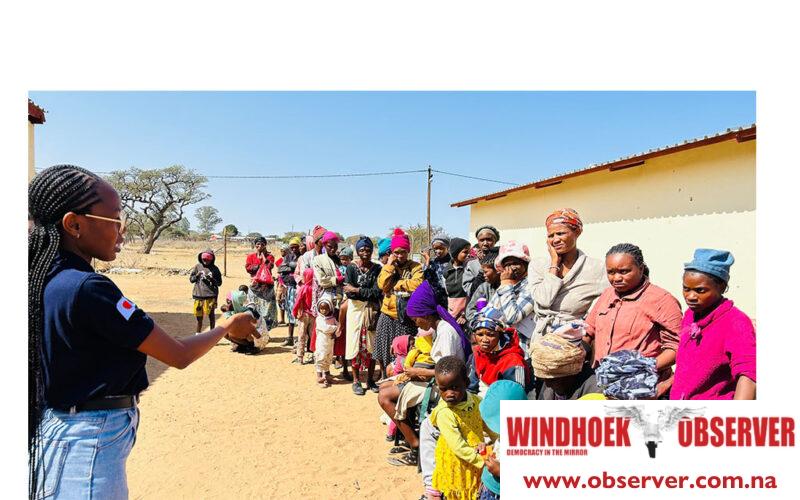Niël Terblanché
The World Health Organization (WHO), in collaboration with the Government of Japan, donated cervical cancer screening instruments to the Ministry of Health and Social Services (MoHSS) in the Omaheke region.
According to a statement published by the WHO, the donation was made under the Japan-funded project titled “Increasing Access to Quality Nutrition and Protection Services for Vulnerable Populations,” which focuses on enhancing access to vital health interventions, particularly for women and children.
Dr. Temptation Chigova, WHO’s Maternal and Child Health Officer, delivered remarks on behalf of WHO Namibia’s representative, Dr. Richard Banda, expressing gratitude to the Government of Japan for their financial support.
“As WHO, we would like to express our gratitude to the Government of Japan for the financial support in procuring the screening instruments being donated to the Ministry today,” Dr. Chigova said.
She stressed the WHO’s ongoing commitment to supporting the Namibian government in its efforts to protect the health of women and reduce cervical cancer mortality across the country.
The donated instruments, which include 200 vaginal speculums and 200 Visual Inspection with Acetic acid (VIA) packs, played a crucial role during the African Child Vaccination Week which was observed last week.
“This initiative integrated cervical cancer screening into broader health efforts, aiming to eliminate the disease and achieve the ambitious 90-70-90 elimination targets set by global health authorities,” she added.
Cervical cancer remains a health challenge in Namibia, where an estimated 375 women are diagnosed with the disease annually, and 214 women lose their lives to it.
It is the second most common cancer among women in the country, yet it is largely preventable through regular screening, HPV vaccination, and timely treatment.
Omaheke Regional Health Director, Jeremiah Shikulo, expressed his appreciation for the timely donation, noting that it will enhance the region’s ability to reach the targeted population during the vaccination week.
“The instruments will allow us to reach the targeted population in the Omaheke region, and I would like to ensure the WHO that the instruments we received will be used for the intended purpose of screening, detecting, and treating cervical cancer,” he said.
He also announced that screening points for cervical cancer that were established at various locations, including Epako, Aminuis, and Leonardville clinics, as well as the Otjinene Health Centre and Epako Community Centre, ensuring widespread access to these life-saving services.
Shikulo added that the partnership between WHO and Japan marks yet another step forward in Namibia’s efforts to combat cervical cancer, aiming to reduce mortality rates and improve the health outcomes of women in Namibia.




